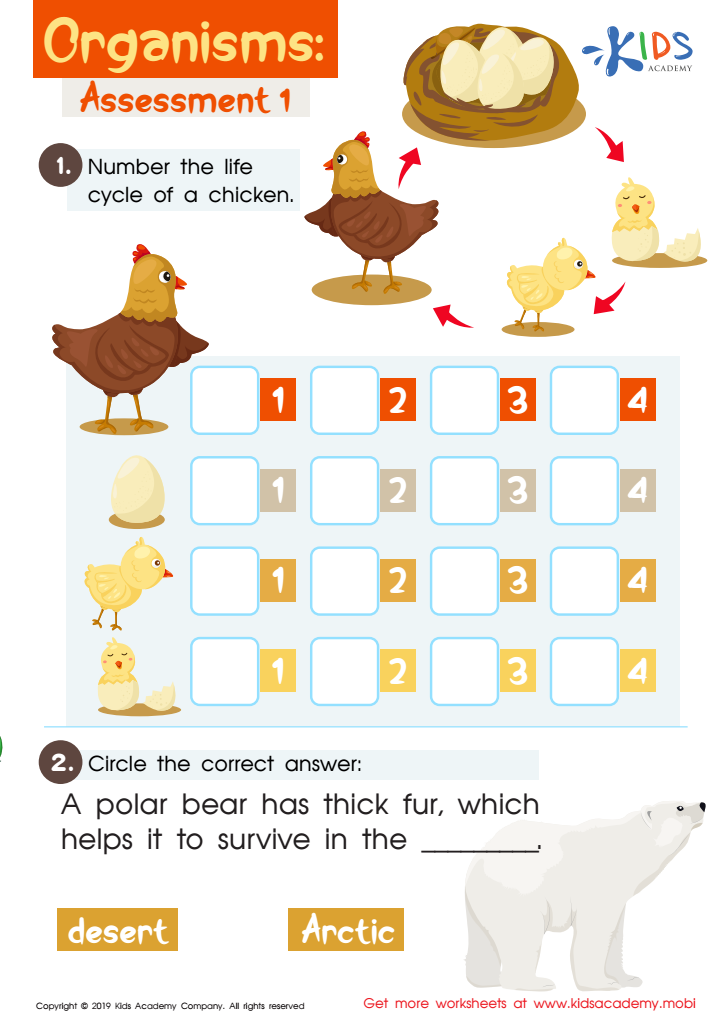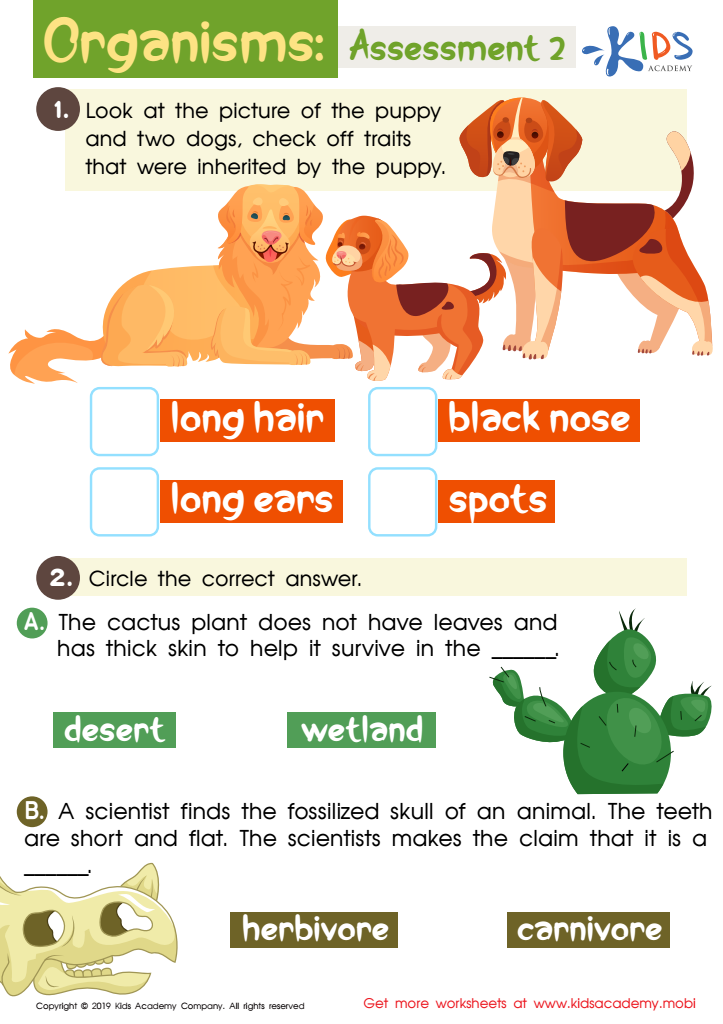Our Planet and Environment Worksheets Activities With Answers for Ages 3-9
5 filtered results
-
From - To
Explore our engaging "Our Planet and Environment Worksheets" designed for children ages 3-9! These interactive activities encourage young learners to discover the wonders of our world while fostering important values of environmental stewardship. Each worksheet features vibrant illustrations and simple prompts that help kids understand concepts such as nature, recycling, and protecting the environment. Answers are conveniently included to support parents and educators in guiding discussions and enhancing learning. Perfect for home or classroom use, these worksheets promote creativity, critical thinking, and a love for the planet. Start your journey towards safeguarding our environment with fun and educational activities today!


Organisms: Assessment 1 Worksheet


Ecosystems: Assessment 1 Worksheet


Animals and Plants: Assessment 2 Worksheet


Organisms: Assessment 2 Worksheet


Animals and Plants: Assessment 1 Worksheet
Parents and teachers should care about engaging young children in planet and environment activities because these formative years are crucial for instilling values and knowledge about sustainability. Children's understanding of environmental issues can shape their attitudes and behaviors for a lifetime. Ages 3-9 are particularly receptive to learning through play and exploration, making it the perfect time to introduce concepts like conservation, recycling, and respecting nature.
By involving kids in hands-on activities such as gardening, nature walks, or recycling crafts, they gain firsthand experience and connections to their environment. These activities not only educate them about ecosystems and biodiversity but also stimulate their curiosity, creativity, and critical thinking skills.
Moreover, fostering a sense of responsibility towards the planet can empower children to become informed and proactive stewards of the Earth as they grow older. When parents and teachers prioritize these activities, they contribute to developing a generation that values sustainability and climate action.
Engaging children in environmental activities also promotes teamwork, kindness, and an appreciation for diversity in nature. Ultimately, nurturing a love for the Earth at a young age helps to secure a healthier planet for future generations while enhancing children's overall well-being and confidence.
 Assign to My Students
Assign to My Students














